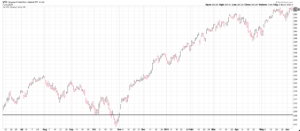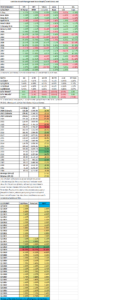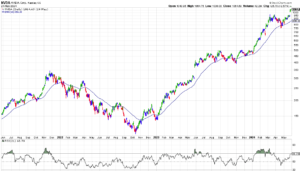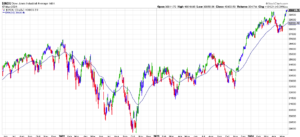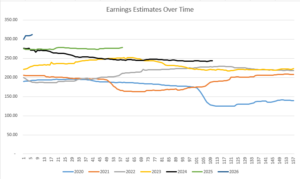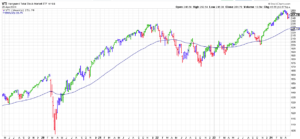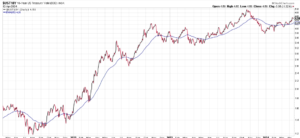MARKET RECAP
- US stocks =0.17%, international +0.20%, bonds +0.05%.
- The ISM report for manufacturing dropped to 48.7 from 49.2 in April, the consensus was for 49.8.
- The number of job openings is at a three-year low of 8 million.
- Brent crude oil dropped to as low as $78.92 on Friday, the lowest price since February.
- India’s Modi lost seats in the election, and Claudia Sheinbaum was elected President of Mexico.
- The S&P 500 closed at a record on Wednesday, its 25th record close this year.
- 272,000 jobs were added in May, smashing the estimate of 180,000. The unemployment rate increased to 4%.
- The net worth of Americans increased by 3.1% or $5.1 trillion, in Q1.
- NVDA topped a $1 trillion valuation.
US STOCK MARKET as represented by the VTI
MARKET RECAP

